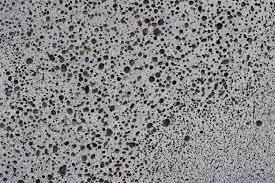Sodium silicate powder: the new favorite of environmental protection, helping green buildings

Property of Sodium silicate powder
Industrial sodium silicate has different properties due to the different ratios of sodium oxide and silicon dioxide in the molecule. The molecular molar ratio of sodium oxide to silica is called the modulus. If it is above 3, it is called neutral water glass. If the modulus is below 3, it is called alkaline water glass. Its products are usually divided into solid water glass, hydrated water glass and liquid water glass. Sodium silicate is a colorless, light yellow or blue-gray transparent viscous liquid. Soluble in water and is alkaline. The colloidal precipitate that decomposes and precipitates silicic acid when exposed to acid is a vitreous substance with no fixed melting point. The general modulus for water treatment is 2. 5 to 3.0.
Preparation method of Sodium silicate powder
Dry method: Mix soda ash and silicon evenly in a certain proportion, and then melt and react. It is prepared by heating and dissolving, settling and concentrating. Or it can be made by mixing sodium sulfate (glauber’s salt) and pulverized coal and then adding silica sand for reaction. It can also be obtained by mixing trona, silica sand and coal powder in proportion and performing a melting reaction. The wet method is to heat and react liquid caustic soda and silica sand in a reactor, and the product is filtered and concentrated.
Applying of Sodium silicate powder
Silicates, as corrosion inhibitors, were first used in the anti-corrosion of domestic water pipes. After that, researchers at home and abroad studied and prepared a composite formula using silicate as the main corrosion inhibitor, which further improved the corrosion inhibition performance of silicate. Silicates can form protective films on clean metal surfaces as well as rusty metal surfaces. However, these protective films are porous, so the corrosion inhibition performance of silicates is poor when used alone. Silicates are often combined with Polyphosphate, organic phosphate, molybdate, zinc salt and other corrosion inhibitors are compounded to synergize. At present, the development and development of silicon-based composite agents has become a new development trend. Silicates can not only inhibit the corrosion of steel in cooling water, but also inhibithe corrosion of non-ferrous metals such as light weight aluminum and copper along with their alloys, lead, and zinc coatings. They are especially suitable for controlling dezincification of brass. Silicate can effectively prevent the corrosion of CI-, so it can be used in circulating water systems that use seawater as supplementary water or contain high Cl-. In circulating cooling water, the general concentration of silicate used is 40 to 60 mg/L (based on Sioz), with a maximum concentration of 25 mg/L. Shengjia operating pH value is 8. O~9.5. When using silicate as a corrosion inhibitor, there must be enough oxygen in the cooling water so that the metal can be effectively protected.

Safety of Sodium silicate powder
Sodium silicate is a low-toxic drug and has irritating effects on skin and mucous membranes. If ingested, it can result in vomiting and diarrhea. Protective measures should be taken when contacting and using sodium silicate. Containers should be sealed and stored in a well-ventilated warehouse. Do not store or transport together with acids.
Supplier
TRUNNANO is a supplier of sodium silicate materials with over 12 years experience in nano-building energy conservation and nanotechnology development. It accepts payment via Credit Card, T/T, West Union and Paypal. Trunnano will ship the goods to customers overseas through FedEx, DHL, by air, or by sea. If you are looking for high-quality sodium silicate, please feel free to contact us and send an inquiry.



